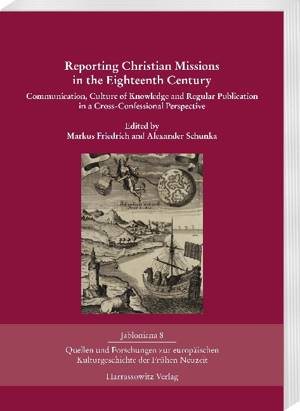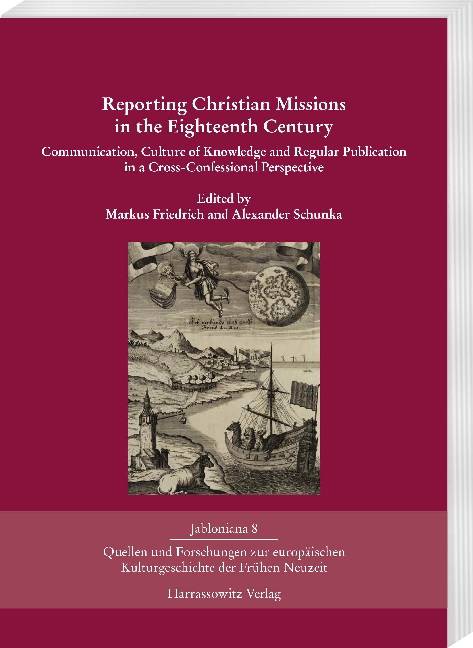
Bedankt voor het vertrouwen het afgelopen jaar! Om jou te bedanken bieden we GRATIS verzending (in België) aan op alles gedurende de hele maand januari.
- Afhalen na 1 uur in een winkel met voorraad
- In januari gratis thuislevering in België
- Ruim aanbod met 7 miljoen producten
Bedankt voor het vertrouwen het afgelopen jaar! Om jou te bedanken bieden we GRATIS verzending (in België) aan op alles gedurende de hele maand januari.
- Afhalen na 1 uur in een winkel met voorraad
- In januari gratis thuislevering in België
- Ruim aanbod met 7 miljoen producten
Zoeken
Reporting Christian Missions in the Eighteenth Century
Communication, Culture of Knowledge and Regular Publication in a Cross-Confessional Perspective
€ 111,45
+ 222 punten
Omschrijving
Regular reporting on extra-European Christian missions was a distinctive feature of the early modern era, changing the worldviews of Europe and Europeans. The present collection of essays offers an innovative approach to this phenomenon by comparing different missionary publications from a cross-confessional perspective. It establishes a broader framework for understanding the organized and institutionalized transfers of knowledge from the missions to Europe. Contributions by various international specialists to such hallmarks of European Enlightenment as the Hallesche Berichte and the Jesuit Lettres Edifiantes along with less famous examples as the Circular Letters of the British missionary societies (SPCK, SPG) or the Gemeinnachrichten of the Moravian Brethren not only analyze the content but also the technologies and procedures employed to spread information. The volume discusses the comparability of the different missionary periodicals from the vantage point of cultural history. It emphasizes the importance of regular publishing of missionary activities for the fashioning and strengthening of religious identities, against the backdrop of an evolving 'Public Sphere' in the Enlightenment and the formation of increasingly globalized cultures of knowledge in Europe.
Specificaties
Betrokkenen
- Uitgeverij:
Inhoud
- Aantal bladzijden:
- 196
- Taal:
- Engels
- Reeks:
- Reeksnummer:
- nr. 8
Eigenschappen
- Productcode (EAN):
- 9783447108256
- Verschijningsdatum:
- 14/06/2017
- Uitvoering:
- Hardcover
- Formaat:
- Genaaid
- Afmetingen:
- 170 mm x 240 mm
- Gewicht:
- 538 g

Alleen bij Standaard Boekhandel
+ 222 punten op je klantenkaart van Standaard Boekhandel
Beoordelingen
We publiceren alleen reviews die voldoen aan de voorwaarden voor reviews. Bekijk onze voorwaarden voor reviews.








